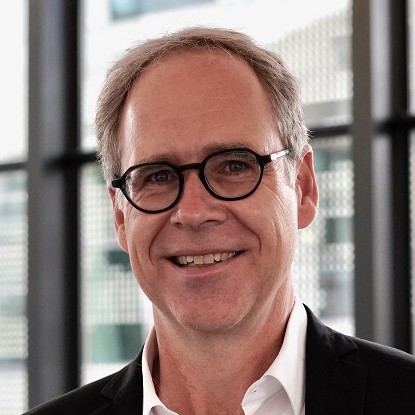PhD Cunjing Lu
Age: 35
Area of research: Bio-inspired superhydrophobic materials and nano/micro systems, droplet wetting behavior (impacting, condensation, transportation), thermally-induced Marangoni effects in liquid films, optical-based nano/micro particle manipulation technologies
Name of my University / Research Institute: I studied and obtained my PhD at Tsinghua University, Beijing, China
Research period at the TU Darmstadt: November 2015 to November 2016
Questionnaire to the Research Fellow
My field of research is fascinating. To laymen I would explain it in the following comprehensible manner:
My research bridges the areas of solid/fluid mechanics, wetting phenomena, interactions at solid/liquid/vapor interfaces, and droplet/particle manipulation technologies. My ultimate goal is to enable understanding and designing textured structures with unprecedented wetting properties such as extreme hydrophobicity and stability, tunable wetting properties etc.; and to explore their versatile capabilities and functions in technological applications such as droplet collection, heat dissipation, ant-icing/anti-fogging, nano/micro droplet/particle transport and high precision operations.
My most important success in research to date is:
that I developed a technology with Prof. Hardt that enables the manipulation of small objects at a liquid surface based on light-induced flow (“Marangoni tweezers”). With that technology micro- and nanoparticles (e.g. quantum dots, DNA molecules, cells) can be trapped and manipulated.
I’ve chosen the TU Darmstadt because…
the Center of Smart Interfaces (CSI) offers one of the most advanced lab infrastructures for studying fluids interacting with solid surfaces. Prof. Steffen Hardt is an excellent scientist covering both experimental and theoretical topics. The expertise of this group, especially in the fields of microfluidics and wetting phenomena, will contribute to the high quality and sustainable development of my research.
If I were a student today, I would broaden my interests and views of science. I would will set much clearer and more ambitious goals, find and meet much more challenging topics for my long-term academic development and try to change the world (not just focus on publications). I would spend more time on sports to exercise my body and more time on arts to cultivate scientific sentiment. Last but not least, I would be tougher, not miss opportunities to develop faster because currently I am too old facing the academic society in my country…
The perfect balance to a stressful working day are academic discussions with my colleagues to broaden my views and get fresh thoughts.
With the help of my host in Darmstadt I would like to achieve considerable academic progresses, which includes: (1) complete the work on Marangoni tweezers technology; (2) obtain a deeper understanding about the Marangoni effect occurring on substrates of various topologies; (3) systematically develop general theories which can explain the transport of small particles/droplets along soft/hard curved substrates; (4) develop a light-controlled tunable optical switch based on nanoporous glass and optofluidics.
Questionnaire for the host
Guest of: Prof. Dr. Steffen Hardt
Department: Mechanical Engineering
You appreciate in your guest / your guest favourably impressed you by his excellent ability to combine experimental with theoretical work. These two essential pillars of science are often not combined in the way they should be, because researchers either have a pronounced preference for experiments or for theory. Dr. Lu has the quite rare ability to perform both experimental and theoretical work on a very high level.
You, your team and the TU Darmstadt benefit from your guest’s…
very high level of motivation, very broad scientific background & scientific interests, and his eagerness to shift the frontiers of scientific knowledge.







